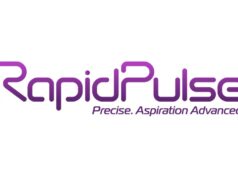
As per early findings from the CHOICE randomised controlled trial (RCT), the use of adjunct, intra-arterial alteplase—among patients with large vessel occlusion (LVO) acute ischaemic stroke and angiographically successful reperfusion following thrombectomy—may lead to a greater likelihood of an excellent neurological outcome at 90 days, as compared to a placebo. However, the study’s authors note in The Journal of the American Medical Association (JAMA) that early termination of the trial limits the scope of these findings, which should be considered “preliminary until replicated”.
Lead author Ángel Chamorro (Hospital Clinic of Barcelona, Barcelona, Spain) and colleagues begin their JAMA report by noting that “it is estimated that only 27% of patients with acute ischaemic stroke and LVO who undergo successful reperfusion after mechanical thrombectomy are disability-free at 90 days”. They further note that an incomplete microcirculatory reperfusion might contribute to these suboptimal clinical benefits—and, through the CHOICE trial, they therefore set out to investigate whether treatment with adjunct intra-arterial alteplase after a successful thrombectomy procedure improves post-reperfusion outcomes.
CHOICE was a Phase 2b, double-blind, placebo-controlled RCT performed from December 2018 through May 2021 in seven stroke centres across Catalonia, Spain. The study included 121 patients with LVO acute ischaemic stroke treated with thrombectomy within 24 hours after stroke onset, and with an expanded treatment in cerebral ischaemia (eTICI) angiographic score of 2b50 to 3.
Chamorro and colleagues relay that 61 participants were randomised to receive intra-arterial alteplase (0.225mg/kg; maximum dose, 22.5mg) infused over the course of 15-to-30 minutes, while 52 patients received a placebo treatment. The primary outcome was the difference in the proportion of patients achieving an “excellent” score of 0 or 1 on the modified Rankin Scale (mRS) at 90 days in all patients treated as randomised. In addition, the study’s safety outcomes included rate of symptomatic intracranial haemorrhage and death.
The CHOICE study was terminated early for “inability to maintain placebo availability and enrolment rate because of the COVID-19 pandemic”, the authors detail in JAMA. From a population of 1,825 acute ischaemic stroke patients treated with thrombectomy at the seven study sites, 748 patients (41%) fulfilled the angiographic criteria, 121 (7%) were randomised (mean age=70.6 years; 47% women) and 113 (6%) were treated as randomised.
Some 36 of 61 participants (59%) had an excellent 90-day mRS score with alteplase compared to 21 out of 52 (40.4%) with placebo. The authors describe this as a “significant” adjusted risk difference of 18.4%. In addition, the proportion of patients with symptomatic intracranial haemorrhage within 24 hours was 0% with alteplase and 3.8% with placebo, according to Chamorro and colleagues. They add that 90-day mortality was 8% with alteplase and 15% with placebo.
As such, they conclude that the use of adjunct intra-arterial alteplase compared to placebo resulted in a greater likelihood of excellent neurological outcome at 90 days—while also acknowledging limitations of the CHOICE RCT, and subsequently the generalisability of its findings.
Speaking to NeuroNews following publication of these results, Chamorro said: “The CHOICE-2 trial is already planned to validate these exciting results and will start early next year. If confirmed, the new paradigm of lysing patients with ‘clean vessels’ will be [introduced] in the guidelines. In Spain alone, which has a population of 47 million people, the significance of these results would be that approximately 1,000 more stroke survivors will be completely free of long-term disability, as well as about 7,000 in the USA. Only five patients will have to be treated with alteplase post-thrombectomy to make one more disability-free.”













